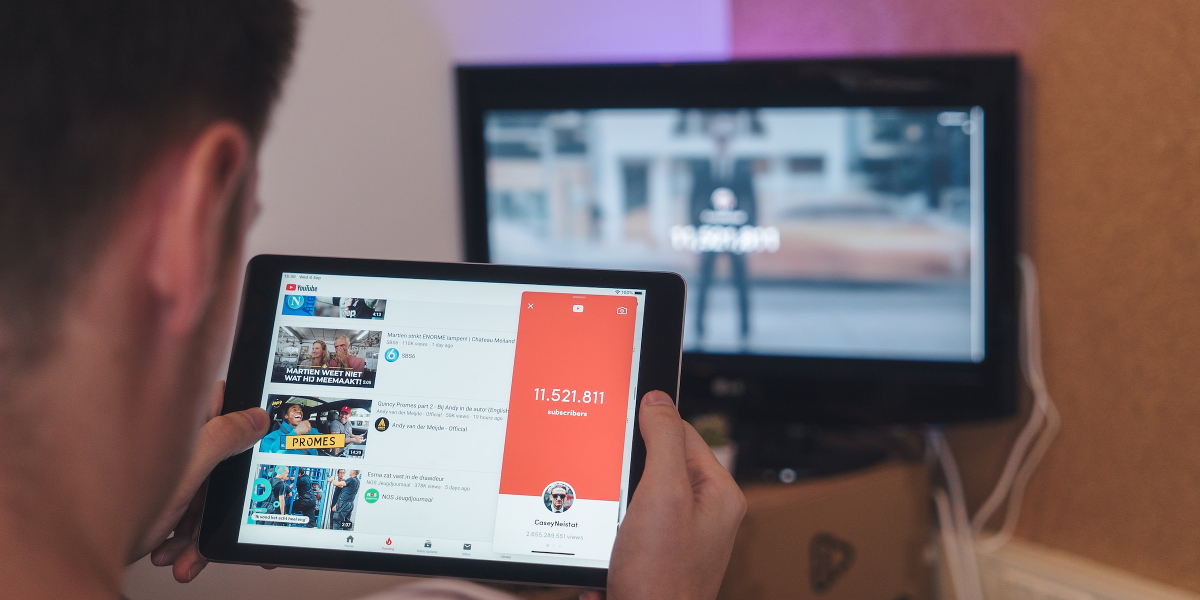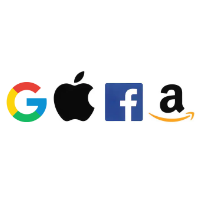 The four primary US tech giants, Google, Amazon, Facebook and Apple (GAFA) are facing legal battles on many fronts across the US and Europe.
The four primary US tech giants, Google, Amazon, Facebook and Apple (GAFA) are facing legal battles on many fronts across the US and Europe.
The big four have faced various scandals around protection of their users’ personal data, the spreading of fake news, and societal harms caused by social media, all of which have created a negative backdrop for the various national and regional regulators responsible for managing competition.
This year alone we’ve seen a number of new investigations opened into the GAFA companies, with many alleging they’ve become too dominant in a number of markets, and are abusing their power to gain unfair advantages over competitors. Just this week, the UK’s Competition and Markets Authority (CMA) announced it is looking into Google’s $2.6 billion acquisition of cloud computing service provider Looker.
With so many investigations taking place at once, we’ve created an overview of the major ongoing probes facing GAFA:
 US Department of Justice
US Department of Justice
Who it’s against: “Market leading online platforms”
Date announced: 23rd July 2019
What’s happened so far: At the start of the summer, reports emerged that the US Department of Justice (DOJ) and Federal Trade Commission (FTC) had carved up the GAFA companies between them for investigation, with the DOJ handed responsibility for Google and Apple. But the two seem to have decided against such a strict division of labour, as the Department of Justice formally announced a wide-ranging investigation into “market leading online platforms” in July. While no specific companies were named in the announcement, the DOJ said it had concerns around “search, social media, and some retail services online,” – suggesting Google, Facebook and Amazon would be in the firing line. And Google confirmed it was under investigation in September, revealing that the DOJ had asked it to provide information about past investigations.
The Department has largely kept quiet about the exact focus of the investigation, though hints have been dropped. The DOJ antitrust division’s assistant attorney general Makan Delrahim said in a policy conference in August that the department is looking at the tech companies’ acquisitions of “nascent competitors”, and Bloomberg has reported that Google’s buyout of data analytics firm Looker Data Sciences is being investigated. And at a separate conference last month, Delrahim said that the companies’ data handling might come under review.
What happens next: The investigation is still in its early stages, and the department has not set any sort of timetable for when it expects to take action, if any. Delrahim indicated back in September that the DOJ was still in the process of collecting documents from relevant third-parties. But while these investigations have the potential to drag on endlessly, Deputy Attorney General Jeffrey Rosen said in an interview last month that the department is looking to complete the review in “an expeditious manner”, after which it will consider which actions might be appropriate.
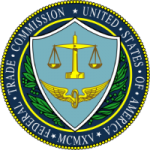 US Federal Trade Commission
US Federal Trade Commission
Who it’s against: Facebook, Amazon (reportedly), and others
Date announced: 24th July 2019
What’s happened so far: The day after the DOJ confirmed it had launched its investigation into online markets, Facebook revealed that it was being reviewed by the Federal Trade Commission. The social media platform had just been handed a $5 billion fine by the FTC over its handling of user data, and disclosed in an earnings call that it was facing an antitrust probe too, saying it had been notified of the investigation back in June.
The FTC also confirmed the Facebook investigation at the time, and FTC chair Joe Simmons revealed in November that the commission also has “multiple other investigations going on into major platforms”. Simmons did not confirm which other companies are being looked at, though Amazon is reported to be one of them.
Like the DOJ, the FTC has said little about the exact nature of its investigations. The Wall Street Journal reported in September that the Commission was examining Facebook’s acquisitions, and was talking with Facebook’s competitors, including Snap, about potentially illegal forms of competition.
What happens next: Simmons has said he’d like the Facebook investigation to be finished before next year’s US presidential election. The chair believes that breaking up Facebook might be hard for the FTC, especially given the company’s efforts to further integrate Facebook, Instagram and WhatsApp. But he has said that the Commission is examining whether current US antitrust laws are fit for regulating the tech giants, with a view to possible reforming the laws, saying that he expects “some output on this topic”.
 US State Attorneys General
US State Attorneys General
Who it’s against: Google and Facebook
Date announced: 6th September (Facebook) and 9th September (Google) 2019
What’s happened so far: In contrast to the FTC and DOJ’s preferences for keeping their investigations behind closed doors, a group of 50 US states and territories’ attorneys general took to the steps of the US Supreme Court in September to announce their probe into Google. Texas Attorney General Ken Paxton said that digital advertising will be the key focus of the investigation, saying that the company “dominates all aspects of advertising on the Internet and searching on the Internet”.
Florida’s attorney general Ashley Moody said that the probe would start by examining the ways Google collects and stores user data, asking whether “Google [has] embedded itself on every level of the online market [for] ad sales to monopolise this industry”. But this is just a starting point, and last month CNBC reported the scope of the review has expanded to include Google’s Android and search businesses.
In October, Ken Paxton’s office reported that Google had been largely cooperative so far, having sent through data as requested. But since then it’s seemingly taken a more aggressive stance, requesting that Paxton hands over internal documents relating to the investigation, which would include information provided by its critics and competitors.
State attorneys general are also conducting a separate antitrust investigation into Facebook. This probe is being led by New York Attorney General Letitia James, who said it will determine whether Facebook’s actions have “endangered consumer data, reduced the quality of consumer choices, or increased the price of advertising”.
The Facebook probe got off to a slower start than Google’s, with just nine attorneys general committed to the probe when it was announced. But since then it has grown, with James announcing in October that 47 attorneys general are now on board.
What happens next: The two probes are somewhat unprecedented, so it’s not clear exactly how they will progress, with Florida’s Ashley Moody telling CNBC that there is no clear playbook to follow. Neither group of attorneys has set a time frame for when they might look to prosecute either company, should they find evidence of illegal activity.
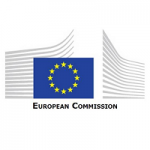 European Commission
European Commission
Who it’s against: Google, Facebook and Amazon
Date announced: 16th July (Amazon) 30th November (Google), 2nd December (Facebook) 2019
What’s happened so far: The European Commission has been a constant thorn in the side of Google in particular during Margrethe Vestager’s tenure as competition commissioner. Vestager has imposed fines of €4.3 billion, €2.4 billion, and €1.5 billion on Google over various anti-competitive practices.
And since July, the Commission has announced three new, separate investigations into Google, Facebook and Amazon, with Facebook and Google’s both announced over the past week.
The Amazon probe’s focus is on how it uses sensitive data from independent retailers who sell via its marketplace, while the Google and Facebook investigations both centre on how the two companies collect and monetise user data, including for advertising purposes.
What happens next: Since the Google and Facebook investigations are both still very new, the Commission says it is still in early stages of sending out questionnaires about the companies’ practices. But given past precedent, it will likely be a while before any action is taken. The EU’s previous investigations into Google have taken at least three years to produce any results.
 UK Competition and Markets Authority
UK Competition and Markets Authority
Who it’s against: “Online platforms” – with Google and Facebook specifically named
Date announced: 3rd July 2019
What happened so far: The UK’s Competition and Markets Authority (CMA) announced in July the launch of an investigation into “online platforms and the digital advertising market in the UK”. The investigation will consider potential harm to consumers in user-facing markets, in the collection and use of their personal data, and via a lack of competition in the digital advertising market.
While the probe will look at the entire market, Google and Facebook have both been named specifically by the CMA as focusses of the investigation, given how the majority of digital ad revenue in the UK is split between the two.
Since the launch of the investigation, the CMA has been collecting evidence from industry players and experts, with both Facebook and Google among those who have submitted responses.
What happens next: The CMA has set a deadline of July 2nd 2020 for the publication of its final report, in which it will set out any concerns it identifies, and any remedies it proposes.
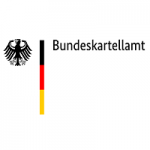 German Bundeskartellamt
German Bundeskartellamt
Who it’s against: Facebook and Amazon
Date announced: 2nd February 2016 (Facebook) 29th November 2018 (Amazon)
What happened so far: Germany’s Federal Cartel Office (Bundeskartellamt) looked to have struck a significant blow against Facebook earlier this year, when it announced that Facebook would no longer be able to combine user data from Facebook with data from its other services, like WhatsApp and Instagram, or from third-party websites without user consent.
The FCO said that Facebook would have 12 months to update its data policies, or risk facing penalties. These could include fines of up to ten percent of worldwide group turnover for the previous fiscal year.
But in August a German court suspended the decision, taking issue with the idea that Facebook’s use of data represented an infringement of competition law. This means that Facebook is currently under no obligation to comply with the FCO’s ruling.
What happens next: The Bundeskartellamt says it will contest the court’s decision, taking the case to Germany’s highest court, the Federal Court of Justice. A date for when the case will be heard has not been publicly announced.
 Dutch Autoriteit Consument & Markt
Dutch Autoriteit Consument & Markt
Who it’s against: Apple
Date announced: 11th April 2019
What happened so far: The Dutch Authority for Consumers & Markets (Autoriteit Consument & Markt, or ACM) announced an investigation into Apple’s App Store back in April, saying it had received complaints from app makers that Apple abused its power in the App Store. The body acknowledged that both Google and Amazon enjoy dominant positions as providers of app marketplaces, but said it has bigger concerns around Apple in particular, given feedback from market players.
The ACM has been collecting evidence from app makers who feel aggrieved by Apple’s use of its App Store, looking at whether Apple sets unfair conditions around favouring its own apps, or charging unfair rates for in-app payment systems.
What happens next: The ACM has not set a date for when it expects its investigation to conclude, but suggested in its initial market study that it would consider using both existing competition law, and proposing new ex-ante (forward looking) regulation if it found evidence of anti-competitive behaviour.
 French Autorité de la Concurrence
French Autorité de la Concurrence
Who it’s against: Google
Date announced: 24th October 2019
What happened so far: A host of French media companies filed a complaint in October with France’s competition authority, the French Autorité de la Concurrence, over its refusal to pay to display their content in its search results.
The complaint was filed by the APIG press alliance, an alliance of French regional and national newspapers, and related to new copyright laws introduced by the EU and enshrined in French law earlier this year. The EU Copyright Directive allows publishers to ask for payment when their content is reproduced in search engine results, as happens on Google Search and Google News. Google has refused to pay, saying instead that it won’t include text or images from publishers which don’t consent to their content being reproduced.
But the APIG press alliance believe this represents an abuse of Google’s dominance in search. “Google is offering us a choice between amputating our traffic, which will prevent readers from finding us or accessing our sites via its search engine, and amputating our rights,” said Pierre Louette, CEO of the Les Echos-Le Parisien media group.
What happens next: The competition authority has not yet publicly responded to the case, or indicated whether it has sympathy with the publishers’ case. It has however found backing from French President Emmanuel Macron, who said Google is ignoring “the spirit and the letter” of the copyright law by refusing to pay.
But the case looks to be on shaky ground. Germany publishers filed a very similar case with their own competition authority back in 2015, who struck it down, saying that Google can’t be forced to pay for licenses if it doesn’t want to. And Google has shown a willingness to play hardball in this area before, having closed down its Google News service in Spain after tough new copyright laws were introduced there in 2014.

